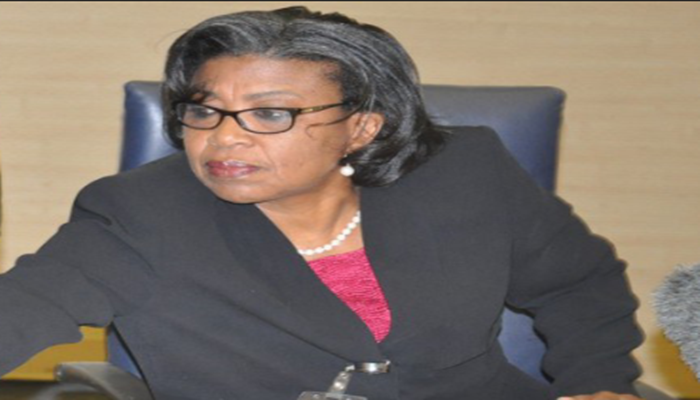
The Director-General (DG) of the Debt Management Office (DMO), Ms. Patience Oniha, said on Monday that the federal government would focus more on external borrowings, to reduce debt servicing.
Oniha told the News Agency of Nigeria (NAN) in Lagos that in order to move forward, the debt office would concentrate more on external borrowings at cheaper rates.
She said that government had decided to borrow more externally to repay Treasury Bills (TBs) that mature every now and then.
“Going forward as we do more borrowing based on the Appropriation Act, what can we do to make sure that debt servicing, at least if it does not come down, it remains manageable.
“We have decided to do more of external borrowings at cheaper rates,’’ she stated.
Oniha said that most of the country’s borrowings were in the domestic market, at high rates.
She said that government revenue dropped by 50 per cent due to a drop in oil prices and oil production, which now made debt servicing look like a big number.
Oniha said that the debt profile was not debt borrowed now but a cumulative thing.
The DG said that in spite of the debt figure, the country’s debt profile was still within the World Bank approved threshold.
“One of the measures of debt is debt to Gross Domestic Product (GDP) ratio, and our debt to GDP ratio is low.
“The challenge we have is that revenues are low; our debt service is higher than what we expect it to be because government revenue has dropped,’’ she said.
“Most of our borrowings were in the domestic market, at high rates,’’ the DMO chief said.
Oniha said that it was cheaper borrowing externally when compared with domestic borrowing at 18 per cent and 17 per cent for Treasury Bills and bonds, respectively.
The DMO boss said that Treasury Bills maturing this December would be repaid with 500 million dollars, out of the three billion dollars Eurobonds raised by the government in November.
According to her, government in November, raised 1.5 billion dollars at 7.5 per cent and did another 10-year bond at 6.5 per cent.
She said that in the domestic market, the interest rate will go as high as 18 per cent.
Oniha said that government had embarked on aggressive tax drive through the Voluntary Assets and Income Declaration Scheme (VAIDS), to increase revenue.
“Government is trying to diversify the economy, in order to get more revenue apart from oil,’’ she said.
She lamented that Nigerians were not paying taxes as expected, saying that Nigeria’s tax to GDP was at six per cent, the lowest in the world, while South Africa was 27 per cent.
“There are taxes to be paid by individuals, companies and SMEs, apart from revenue from oil but people are not paying taxes in Nigeria,’’ she said.
She also said that government borrows to fund projects, build hospitals, roads to create employment and to make quality of life better, so as to encourage the industrial sector.
Credit: news Agency of Nigeria (NAN)






